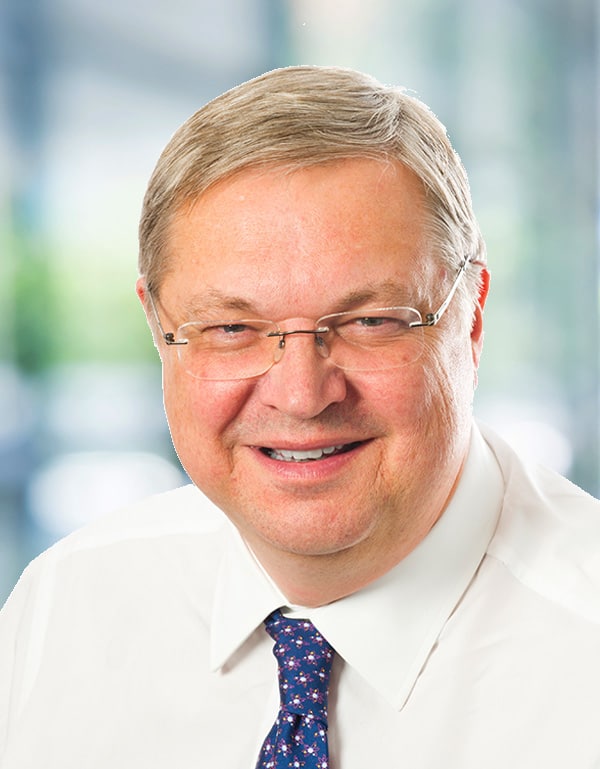
Sir Andrew Dillon has announced that he will step down as chief executive of England’s cost-effectiveness watchdog NICE at the end of March next year, after more than 20 years in the post.
Sir Andrew was appointed in April 1999, when the organisation was established in the first term of Tony Blair’s ‘New Labour’ government.
NICE quickly became the world’s best-known and most prominent health technology assessment (HTA) body, and has set the standard for many other national institutes set up since then.
The organisation was immediately controversial with the pharmaceutical industry, and its first decision to not recommend GSK’s anti-flu treatment Relenza was seen as a sign it would become a ‘fourth hurdle’ to market access.
However two decades later, the institute is a well-respected body and broadly trusted by the pharma industry and patient organisations, having developed more robust methodologies, transparency and stakeholder engagement.
Reaching the mandatory civil service retirement age of 65 in May this year, Sir Andrew spent the first part of his career in NHS management. He joined the health service in 1975 and went on to manage the Royal Free Hospital and lead St George’s hospital in London before taking on the NICE role.
Knighted in 2009 for his services to the NHS and NICE, Sir Andrew is known for his softly spoken style, but has shown his ability to lead the organisation through successive waves of change. This included at one time plans to strip its guidance of its mandatory status for the NHS, but its role in England’s NHS is now assured.
NICE isn’t free of controversy, however, and there remains debate about how it reaches its decisions, including its core cost effectiveness methodology, the quality-adjusted life year or quality-adjusted life-year (QALY) and its threshold of £30,000 per QALY.
Sir Andrew recently became personally involved in the long-running and very public dispute with Vertex over its cystic fibrosis drug Orkambi, criticising the firm for its inflexibility, but he has otherwise cultivated an open dialogue with the pharma sector.
The last two years has seen controversy ease somewhat for NICE, as NHS England has played an increasingly hands-on role in negotiating price and access deals with the industry, helping to solve what were previously frequent headline-grabbing disputes between companies and the institute.
Cutbacks in public sector spending in the UK in recent years have seen the organisation forced to streamline its operations, while at the same time taking on responsibility for reviews of more health technologies and clinical guidance.
Since April it has introduced charges to the pharma industry to carry out technology appraisals, despite complaints from the sector about the need for updates to its methods, and concerns from NHS organisations that this might compromise its independence.
NICE recently announced a full review of its methodologies, but as this consultation will only get underway in summer 2020, its conclusions will be dealt with by Sir Andrew’s successor.
Announcing his departure, Sir Andrew said: “It has been a privilege to lead the organisation through its first two decades.”
“NICE has made a significant contribution to improving outcomes for people using the health and care services, and to the efficient use of resources. I feel very proud to be associated with those achievements.”
The pending vacancy in the chief executive post isn’t the only one at NICE – current chair Sir David Haslam is also stepping down later this year.
Commenting on Dillon’s departure, Sir David Haslam said: “The role of chief executive of NICE must be one of the most challenging and potentially controversial in British public life.”
“Sir Andrew has carried out this role for 20 enormously successful years, and everyone who knows him – whether in government, the life sciences industry, or in health and social care – is full of admiration for his calm and skilful leadership. He was there right at the birth of NICE, and will leave it as an internationally respected, world leading, and hugely influential organisation.”
“That’s quite a legacy and I’d like to thank him for his unwavering, dedicated service to NICE for the past 20 years and to the NHS before that.”

Mike Thompson, chief executive of the UK industry association the ABPI said:
“Sir Andrew has led NICE with a laser focus on establishing how the latest medicines can benefit patients and the NHS.”
“He has played a central role in building the credibility of the organisation, insisting on transparent processes, and a continuous dialogue with all stakeholders, recognising that as the science evolves, NICE needs to evolve too. As a result of this leadership, there is a consensus across industry about the central role of NICE in assessing all medicines, ensuring that patients have a right to access the treatments they need.”
“Hugely respected by all, we thank and congratulate Andrew on his outstanding achievements at NICE, and we wish him all the very best in his future endeavours”.
The board of NICE says it will make arrangements to advertise the chief executive’s post during the autumn.




